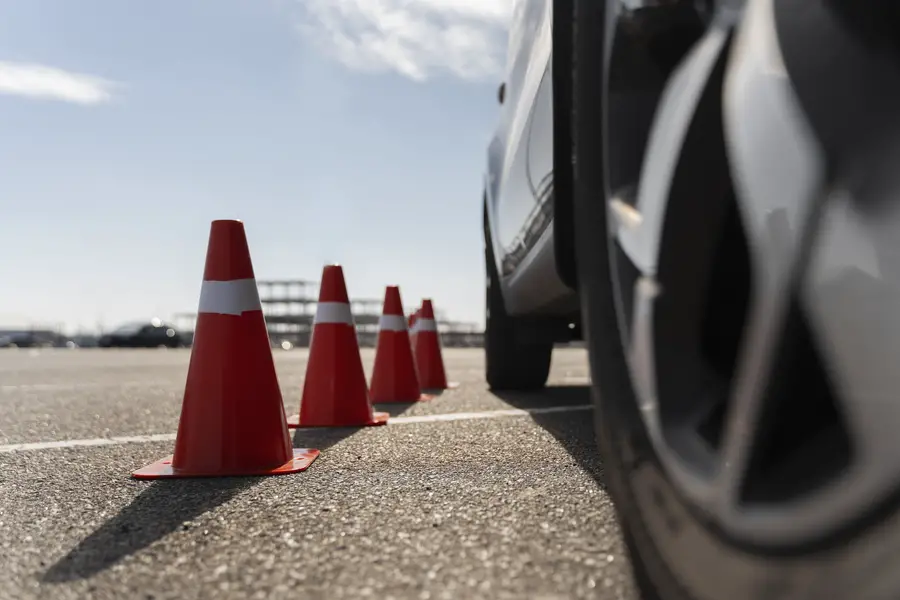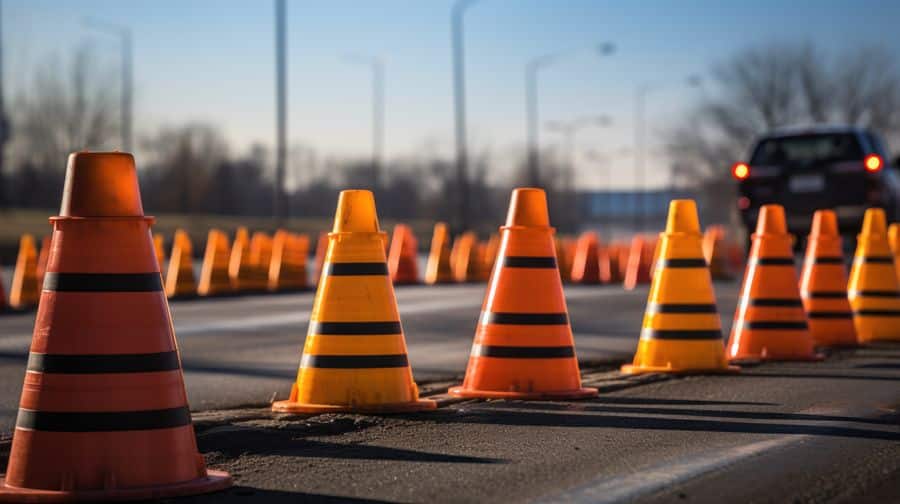DUI checkpoints, also known as sobriety checkpoints or roadblocks, are temporary traffic stops set up by law enforcement to prevent impaired drivers from continuing their journey. These checkpoints are typically established on public roads during times when alcohol-related incidents are more likely to occur, such as weekends and holidays. Drivers who are stopped will be asked to present their driver’s license and may be administered a breathalyzer test to determine if they are impaired. Understanding your rights at DUI checkpoints is essential to protecting your legal interests and ensuring a fair encounter with law enforcement officers.
Definition of DUI Checkpoints
DUI checkpoints are planned traffic stops where officers strategically position themselves to randomly or systematically stop vehicles to assess drivers’ sobriety. These checkpoints serve as a proactive measure to deter and detect impaired driving, ultimately ensuring the safety of all road users.
At DUI checkpoints, officers are stationed at specific locations, such as busy intersections or highways, during designated hours when impaired driving incidents are more likely to occur. All drivers, regardless of their driver’s license status, are subject to screening by law enforcement officers. The primary objective of these checkpoints is to identify and apprehend drivers who may be under the influence of alcohol or drugs.
During these stops, they employ various techniques and tools to evaluate motorists for signs of impairment. They may request drivers present their driver’s license, vehicle registration, and proof of insurance to verify their identity and ownership of the vehicle. Additionally, officers may engage drivers in brief conversations to assess their demeanor and detect any potential signs of intoxication.
While the specific procedures may vary depending on jurisdiction, officers often utilize standardized field sobriety tests (SFSTs) to further evaluate drivers’ sobriety. These tests typically include the horizontal gaze nystagmus (HGN) test, the walk-and-turn test, and the one-leg stand test. These tests are designed to assess a driver’s physical coordination, balance, and ability to follow instructions, which can be impaired by alcohol or drugs.
Furthermore, officers may employ portable breathalyzer test devices to measure a driver’s blood alcohol concentration (BAC) on the spot. These devices provide a quick and reliable indication of a driver’s level of impairment. If a driver’s BAC exceeds the legal limit, which is typically 0.08% in most jurisdictions, they may be subject to further testing or arrest.
However, DUI checkpoints are conducted by strict legal guidelines to protect the rights of motorists. These guidelines often require law enforcement agencies to provide advance notice of the checkpoints to the public, ensuring transparency and fairness in the enforcement process.
DUI checkpoints serve as a valuable tool in the fight against impaired driving. By establishing a visible and proactive presence on the roads, law enforcement agencies aim to deter potential offenders and raise awareness about the dangers of driving under the influence. These checkpoints not only help remove impaired drivers from the road but also serve as a reminder to all motorists to make responsible choices and prioritize the safety of themselves and others.
For legal assistance with DUI charges, contact our team of expert criminal defense lawyers in California today.
Purpose of DUI Checkpoints
The primary purpose of DUI checkpoints is to deter and apprehend individuals who are operating a motor vehicle while under the influence of alcohol or drugs. Checkpoints provide an opportunity for law enforcement to identify and remove impaired drivers from the road, promoting public safety and reducing the number of alcohol-related accidents and fatalities.
When it comes to ensuring road safety, DUI checkpoint procedures play a crucial role in preventing potential disasters. These checkpoints are strategically placed in areas with high incidences of drunk driving incidents, such as near bars, clubs, and popular nightlife spots. By setting up these checkpoints, law enforcement agencies aim to create a visible deterrent for those who may consider getting behind the wheel after consuming alcohol or drugs.
Moreover, DUI checkpoints serve as a powerful tool for raising awareness about the dangers of drunk driving. The presence of law enforcement officers, flashing lights, and signage at these checkpoints sends a clear message to the community that driving under the influence will not be tolerated. This visual reminder serves as a wake-up call for individuals who may have previously underestimated the risks associated with impaired driving.
While the primary goal of field sobriety tests is to apprehend impaired drivers, they also serve as a valuable opportunity for law enforcement officers to engage with the community. Officers at these checkpoints often distribute informational pamphlets and brochures about the dangers of drunk driving, as well as provide resources for individuals seeking help with substance abuse issues. This community outreach aspect of DUI checkpoints helps to foster a sense of trust and cooperation between law enforcement and the public.
Are DUI Checkpoints Legal?
The million-dollar question always is, “Are DUI checkpoints legal?” Yes, DUI checkpoints are legal in many jurisdictions, including the United States. The legality of checkpoints may vary from state to state, as each jurisdiction has different DUI checkpoint laws and regulations about these stops. However, the courts have generally recognized the importance of public safety and have permitted the use of DUI checkpoints as long as specific guidelines and protocols are followed.
What Are Your Rights at DUI Checkpoints?
At DUI checkpoints, drivers retain certain rights protected by the Constitution. It is important to understand these rights to ensure that your encounter with law enforcement is fair and in compliance with the law:
You have the right to remain silent: While you must provide your driver’s license, vehicle registration, and proof of insurance when requested, there’s implied consent, and you have the right to remain silent if an officer starts questioning you about your activities or any potential violations. It is advisable to politely exercise this right.
You have the right to refuse a field sobriety test: Field sobriety tests, such as walking in a straight line or standing on one leg, are not mandatory, and you have the right to decline to perform these tests. However, refusal may arouse suspicion, and the officer may proceed with further investigation.
You have the right to refuse a preliminary alcohol screening (PAS) test: PAS tests, which involve a portable breathalyzer device, are also optional unless you are under 21 years of age or on probation for a DUI conviction. Refusing a PAS test generally does not result in a driver’s license suspension.
It is crucial to be aware that state DUI checkpoint laws may vary regarding refusing certain tests, although we can have a general understanding. By now, we’ve already answered the most important question, which is, are DUI checkpoints legal? However, it’s always advisable to consult an expert to receive further advice. To navigate California’s DUI laws effectively, don’t hesitate to contact our lawyers for professional guidance.
How Effective Are DUI Checkpoints?
DUI checkpoints have proven to be an effective tool in deterring drunk driving and reducing alcohol-related accidents. According to research conducted by the Centers for Disease Control and Prevention (CDC), well-publicized and highly visible checkpoints can reduce alcohol-related crashes by approximately 20%. These checkpoints not only serve as a deterrent but also provide an opportunity for education and raising awareness about the dangers of impaired driving.
Can You Refuse To Go Through a DUI Checkpoint?
In most jurisdictions, drivers cannot legally refuse to go through a DUI checkpoint. Once you are aware of the checkpoint, it is generally required that you proceed and comply with the instructions given by law enforcement officers at the scene. Deviating from the designated route or attempting to avoid the checkpoint may result in additional suspicion and could potentially lead to legal consequences.
Can Evidence From a DUI Checkpoint Be Used Against You?
Generally, evidence obtained during a DUI checkpoint can be used against you in court if you are charged with a DUI offense. However, the legality of the checkpoint and how it was conducted can be challenged by your defense attorney. Factors such as the adequacy of notice, adherence to operational guidelines, and the presence of probable cause can all be scrutinized to ensure your rights are not violated.
In conclusion, being aware of your rights and responsibilities at sobriety checkpoints is essential in navigating these encounters with law enforcement. While DUI checkpoints have been recognized as a valuable tool in preventing drunk driving, it is crucial to understand the legal framework surrounding them and how to protect your rights. By staying informed and acting within the boundaries of the law, you can ensure a fair and safe experience at DUI checkpoints.
FAQ
Do I have to show ID at a DUI checkpoint?
You are generally required to show your identification, such as your driver’s license, when asked for it at a DUI checkpoint. Law enforcement officers use this information to verify your identity and check for any outstanding warrants or issues related to your driver’s license or vehicle registration.
Can I challenge the results of a DUI checkpoint?
Yes, you have the right to challenge the results of a DUI checkpoint. If you believe that the checkpoint was conducted improperly or that your rights were violated during the stop, you can consult with an attorney to explore your legal options. Your attorney can review the details of your case, including the checkpoint’s location, timing, and procedures, to determine if there are grounds for a legal challenge.
Do I have to answer questions at a DUI checkpoint in California?
While you generally have the right to remain silent at a DUI checkpoint, it’s advisable to be courteous and cooperative with law enforcement officers. You are not required to answer questions beyond providing your identification and necessary documents like your driver’s license, vehicle registration, and proof of insurance. If an officer begins questioning you about your activities or potential violations, you have the right to politely exercise your right to remain silent. However, it’s essential to stay respectful and avoid any confrontational behavior during the encounter.

